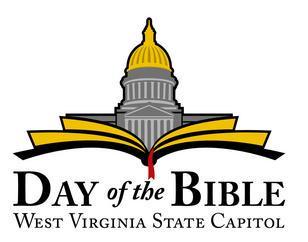Court Strikes Down Biden’s Title IX Overhaul
Nationwide Ruling Blocks Sweeping Redefinition of Sex Discrimination, Sparks Fierce Debate Over Gender and Education

On January 9, a federal district court in Kentucky ruled against President Biden’s controversial Title IX final rule, blocking, in all states, one of the administration’s signature regulations. The final rule had been issued by the Department of Education in April 2024, dramatically expanding what constitutes sex discrimination under Title IX to include “sex stereotypes, sex characteristics, pregnancy or related conditions, sexual orientation, and gender identity.” The rule was immediately challenged by multiple states, resulting in the rule being blocked from taking effect in 26 states. With this latest ruling, the Title IX final rule is now blocked nationwide.
The case represents a significant moment in the ongoing debate over the scope of Title IX, a law originally passed in 1972 to prevent sex-based discrimination in federally funded educational programs. While the Biden administration argued that the changes were necessary to protect students from discrimination in modern contexts, opponents contended that the rule overstepped the bounds of the law’s original intent. The clash over Title IX is emblematic of a broader cultural and legal struggle regarding gender identity, education policy, and federal authority.
Judge Danny Reeves ruled that the final rule was an “attempt to bypass the legislative process and completely transform Title IX.” Reeves considered three controversial provisions of the final rule: first, the expanded list of protected characteristics, including sexual orientation and gender identity; second, the low standard of “de minimis harm” to determine if an institution discriminated against a student based on gender identity; and third, a redefinition of sexual harassment that broadened the term and included conduct that is “subjectively” offensive. Citing the Supreme Court’s recent decision in Loper Bright Enterprises v. Raimondo, the court found that the final rule exceeded statutory authority. Reeves writes that “the entire point of Title IX is to prevent discrimination based on sex—throwing gender identity into the mix eviscerates the statute and renders it largely meaningless.”
The implications of this ruling are far-reaching. For educational institutions, the decision introduces a degree of uncertainty about how to handle gender identity issues and related complaints. Schools that had begun implementing policies to align with the now-blocked rule may face legal and logistical challenges as they navigate competing federal and state guidelines. For students, the ruling raises questions about how protections will be enforced and how their rights will be balanced against those of other stakeholders, including parents and teachers.
The court also found that the final rule “suffers significant constitutional infirmities,” including violating the First Amendment and the Constitution’s Spending Clause. Reeves’s analysis suggested that the rule’s approach to gender identity and sexual orientation introduced substantial risks to free speech. For instance, educators could potentially face penalties for expressing views that conflict with the administration’s interpretation of Title IX. Additionally, the Spending Clause violation pointed to concerns over federal overreach, with the court determining that the Department of Education improperly tied funding to compliance with a rule that exceeded its statutory authority.

Last, the court found the final rule to be “arbitrary and capricious,” allowing for sex-based separation in some activities, but not others. This inconsistency, the court reasoned, undermined the rule’s credibility and created practical difficulties for schools trying to comply. Critics of the rule have pointed out that such inconsistencies could lead to confusion and uneven application across different educational settings.
Alliance Defending Freedom president Kristen Waggoner praised the ruling, stating, “The Biden administration’s radical attempt to redefine sex not only tossed fairness, safety, and privacy for female students out the window, it also threatened free speech and parental rights. With this ruling, the federal court in Kentucky rejected the entire Biden rule and the administration’s illegal actions.” Waggoner’s statement underscores the broader ideological battle surrounding the case, as proponents of the ruling emphasize the need to protect women’s sports, parental involvement in education, and the integrity of longstanding legal definitions.
Supporters of the blocked rule, however, argue that it was a necessary step to ensure that LGBTQ+ students are treated fairly and have equal access to educational opportunities. They contend that failing to include gender identity and sexual orientation within the framework of Title IX leaves vulnerable students exposed to discrimination and harassment. Advocacy groups have vowed to continue fighting for these protections through other legal avenues and public campaigns.
The Biden administration has not yet announced whether it will appeal the Kentucky court’s decision, but legal experts anticipate the case could ultimately reach the Supreme Court. If it does, the high court’s ruling could establish a landmark precedent on the extent of federal authority in shaping anti-discrimination policies in education. In the meantime, the decision fuels ongoing political debates at both the state and federal levels, with legislators and advocacy groups mobilizing to influence public opinion and future policymaking.
For now, the Kentucky court’s ruling stands as a major roadblock to the Biden administration’s efforts to reshape Title IX. The decision reflects broader tensions in American society about how to balance competing rights and interests in a diverse and pluralistic nation. As the legal battle continues, the ruling serves as a reminder of the complex interplay between law, culture, and policy in addressing some of the most contentious issues of our time.

AACS Policy Office
AACS – the American Association of Christian Schools – is one of the leading organizations of Christian schools in the country. Founded in 1972 and now in operation for fifty years, the AACS serves over 100,000 students and teachers in member schools throughout the United States. The general purpose and objectives of AACS are to aid in promoting, establishing, advancing, and developing Christian schools and Christian education in America.
















